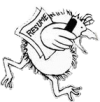Blog
The headlines scream job shedding, retrenchments, redundancies, efficiency dividends - whatever the words, it all means the same thing - my job may be on the line. In the Sydney Morning Herald 16 January 2009 the front page news headline was unemployed reaching 500,000 (ABS statistics released 15 January 2009). The ANZ Job Advertisement series found jobs advertised in the major metropolitan newspapers fell by 9.7% in December. Acting Prime Minister Julia Gillard interviewed on Fairfax Radio Friday Network 16 January 2009 said the global financial crisis may have dented the Australian job market, but she has faith that employers will not overlook the value of skilled staff. She went on to say ‘having fought so hard to get skilled staff, employers will take the view that retaining their staff is very important to their business’. (SMH Article Employers will value Skilled Staff 16/1/09). Reading the economic news and forecasts I asked myself - what would I say if I had a couple of minutes to justify my job? And it occurred to me – it would be useful if people in that precarious position had a clear and concise argument ready.
Just in case
Most organisations with an eye to the future will think about who to keep and who to let go based on skill set, attributes and attitudes for both their current and future requirements. If it comes to the crunch – Do you have your two minute pitch ready? Here are some tips to prepare …. • Start by thinking from the employer perspective. Think only about what’s in it for the company. • Take a sheet of paper and divide it into three columns. • If you were the boss facing the current economic downturn, using the first column, list the jobs, skills and attributes your company needs to survive the downturn and continue operating – preferably still making a profit. • In the middle column, objectively list the value of your role to the organisation. It is not about what you do it is about ‘the role’. Focussing on ‘the role’ realistically quantify its value to the organisation. Eg, if you are in marketing or sales, what does ‘the role’ contribute to this activity? How much does it bring in terms of business/income? If ‘the role’ did not exist, what activities would not be undertaken? What would be the loss to the company in terms of profit/production/growth? • In the third column, list the things you can contribute in the short, medium and long term to the company/s bottom line. Highlight how and where your skills, attributes and attitudes match both the current and future needs of the organisation. • Once you have completed this analysis, list the key points about why they should keep you. Don’t memorise your argument, just practice making your key points in order of importance to the company. • Remember to time yourself – make sure it is no more than two minutes. • Keep your tone conversational and don’t hurry your words. Remember Keep cool, calm and collected – it is all about putting forward a rational economic argument based on employer needs. The exercise will Questions • Have you tried this approach? Please share your experiences. • Would you use this approach? Take a couple of minutes and tell us your views. You can list a topic for discussion, ask a question or mention an interesting article you have read recently.
© 2024 Impressive Interviews. All Rights Reserved.

